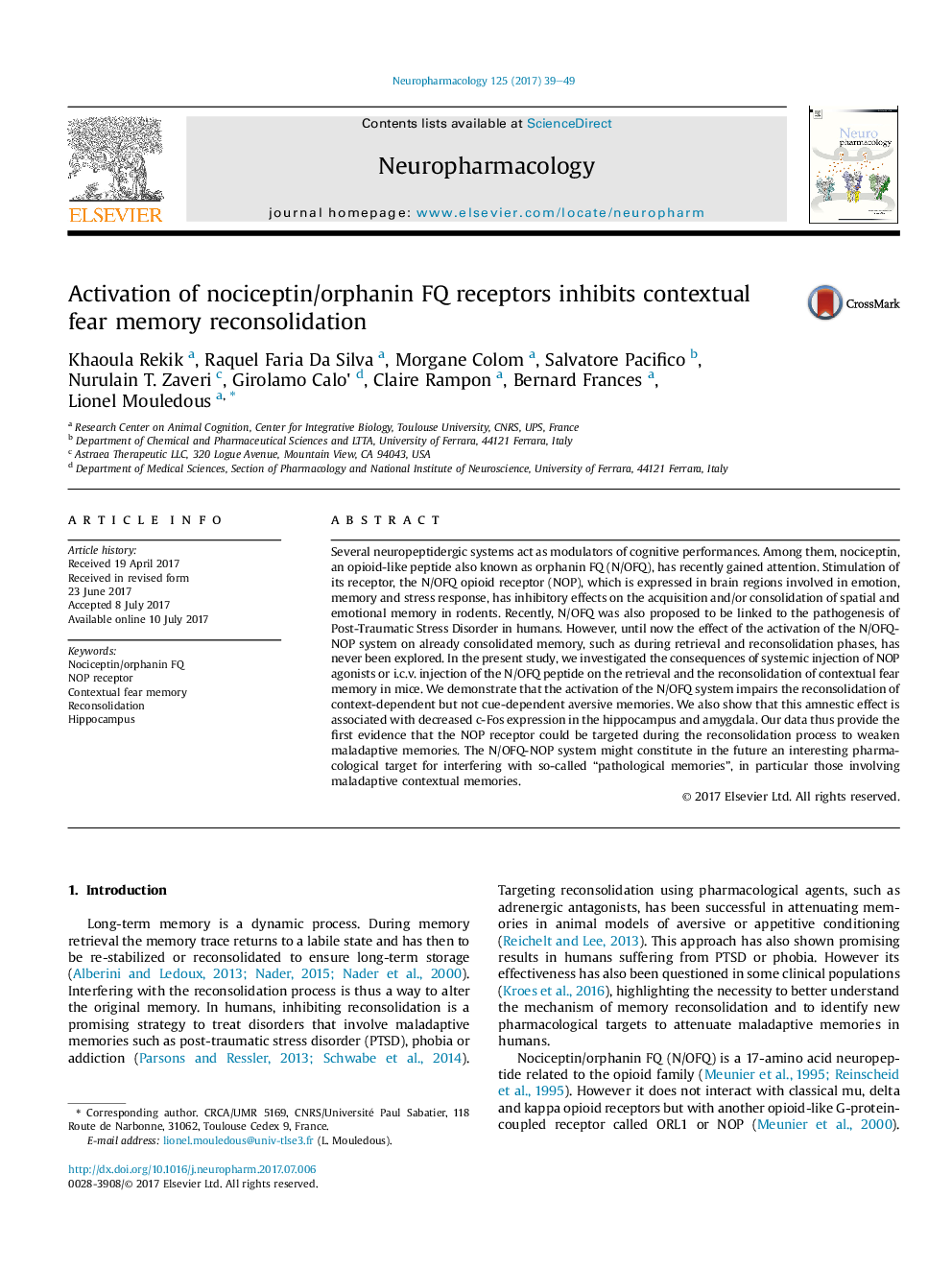| Article ID | Journal | Published Year | Pages | File Type |
|---|---|---|---|---|
| 5548802 | Neuropharmacology | 2017 | 11 Pages |
â¢Systemic injection of NOP agonists inhibits contextual fear memory reconsolidation.â¢NOP agonists inhibit reconsolidation as efficiently as an NMDA receptor antagonist.â¢NOP agonists reduce c-Fos expression in the hippocampus following memory retrieval.â¢NOP receptors could be targeted to attenuate hippocampus-dependent memories.
Several neuropeptidergic systems act as modulators of cognitive performances. Among them, nociceptin, an opioid-like peptide also known as orphanin FQ (N/OFQ), has recently gained attention. Stimulation of its receptor, the N/OFQ opioid receptor (NOP), which is expressed in brain regions involved in emotion, memory and stress response, has inhibitory effects on the acquisition and/or consolidation of spatial and emotional memory in rodents. Recently, N/OFQ was also proposed to be linked to the pathogenesis of Post-Traumatic Stress Disorder in humans. However, until now the effect of the activation of the N/OFQ-NOP system on already consolidated memory, such as during retrieval and reconsolidation phases, has never been explored. In the present study, we investigated the consequences of systemic injection of NOP agonists or i.c.v. injection of the N/OFQ peptide on the retrieval and the reconsolidation of contextual fear memory in mice. We demonstrate that the activation of the N/OFQ system impairs the reconsolidation of context-dependent but not cue-dependent aversive memories. We also show that this amnestic effect is associated with decreased c-Fos expression in the hippocampus and amygdala. Our data thus provide the first evidence that the NOP receptor could be targeted during the reconsolidation process to weaken maladaptive memories. The N/OFQ-NOP system might constitute in the future an interesting pharmacological target for interfering with so-called “pathological memories”, in particular those involving maladaptive contextual memories.
